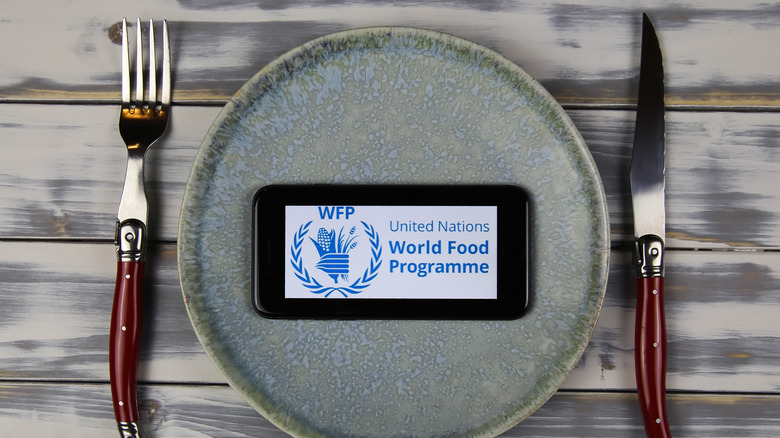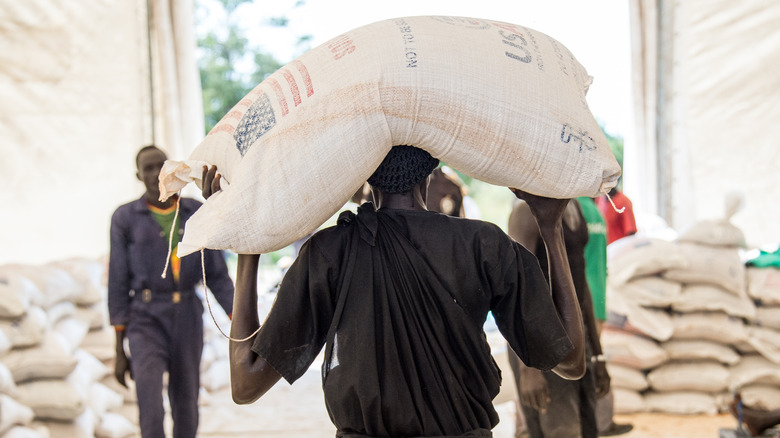The UN Has A Scary Message About Upcoming Food Shortages
It's the world's top exporter of sunflower oil, third-largest exporter of barley, fourth-largest exporter of corn, and fifth-largest exporter of wheat, per the World Economic Forum. All signs pointed to serious trouble when Russia invaded resource-rich Ukraine at the end of February this year, yet none of us may have been fully prepared for the devastation that the invasion, which kicked off shortages as well as skyrocketing food prices would cause. The war in Ukraine has affected the food supply.
The chief of the United Nations World Food Program (WFP), David Beasley, now warns that as many as 345 million people are struggling with food insecurity today, and 70 million are "knocking on famine's door," per AP News. As a result, Beasley said instead of facing what he called a "wave of hunger," the world was now facing "a tsunami."
And it's not like we weren't warned. In a report the WFP ominously calls Hunger Hotspots from May of this year, the aid agency already identified several vulnerable regions which included Ethiopia, Nigeria, South Sudan, and Yemen, along with Afghanistan, Sri Lanka, and Somalia. These areas named were seen as particularly problematic not just because they were experiencing conflict, but because their agricultural systems were also experiencing the stresses triggered by climate change. This caused extreme weather conditions including frequent droughts in some places and horrific flooding and hurricanes in others.
The dire warnings could be an understatement, UN aid officials say
In its report before The United Nations Security Council, the World Food Program highlighted especially vulnerable areas where food insecurity was especially acute due to conflict, and climate change; these included Yemen, South Sudan, and Nigeria, per UN News. But even before this latest report, Beasley says he already sounded the alarm that the world was facing famine and starvation "of biblical proportions" as far back as April of 2020, and it was only with intervention that a large-scale human catastrophe had been averted, AP News reports.
Office for the Coordination of Humanitarian Affairs chief Martin Griffiths said the situation today is so unstable that even the World Food Programme's warnings can now be considered an understatement, according to UN News. "Food security assessments could not be conducted in these areas, but we fear that some people may already be in the catastrophe level and risk death," Griffiths said. And the situation is such that even Ukraine's recent shipments of grain aren't enough.
Unfortunately, there are no easy solutions to the hunger wave now lapping at the borders of these regions, especially since as Griffiths points out, as it is the vulnerable regions already receive "well below half of the required funding," per AP News. All humanitarian aid officials can do now is to ask for an end to the conflicts in the area and to ask for more money to fund their aid operations.

